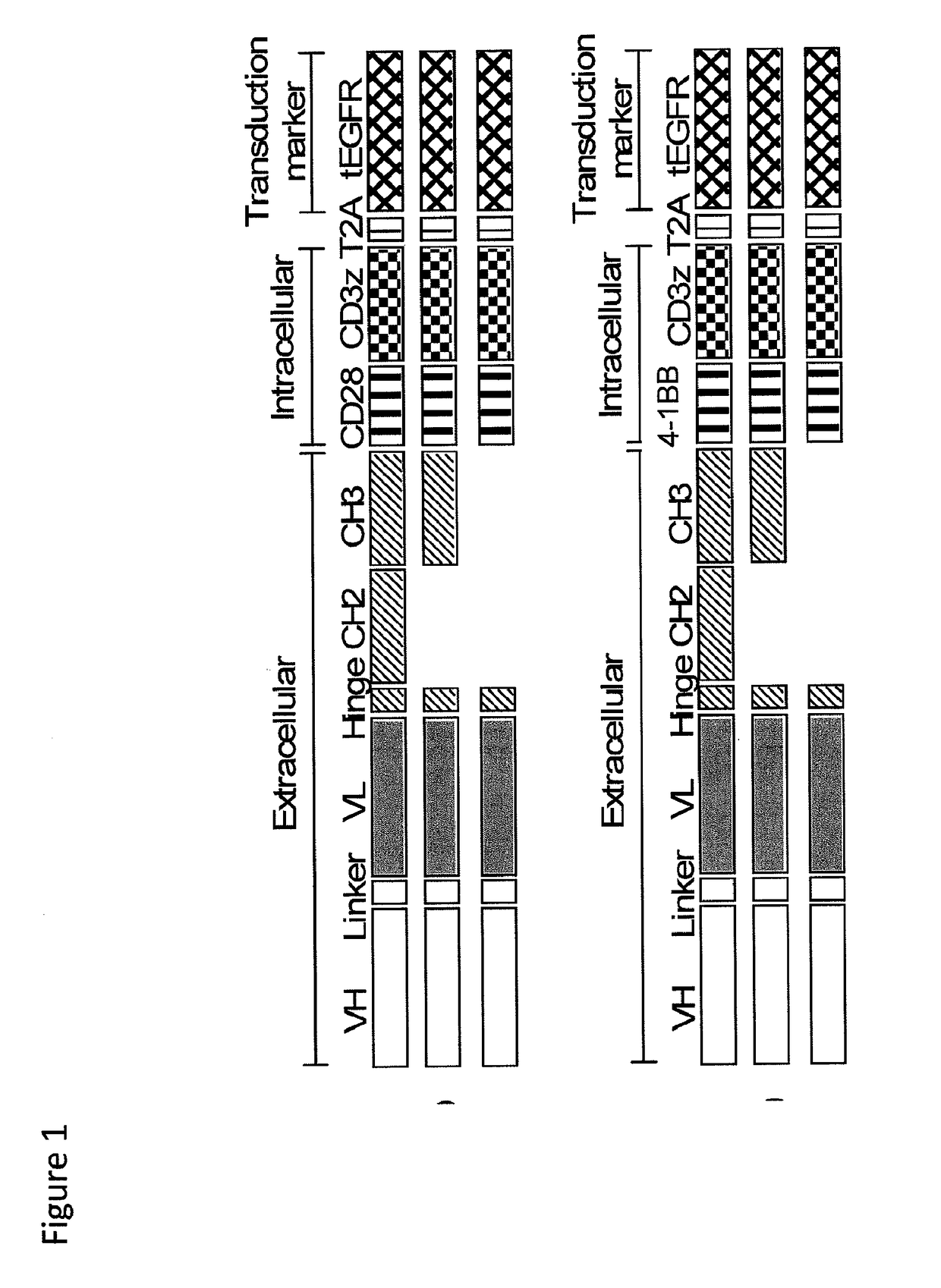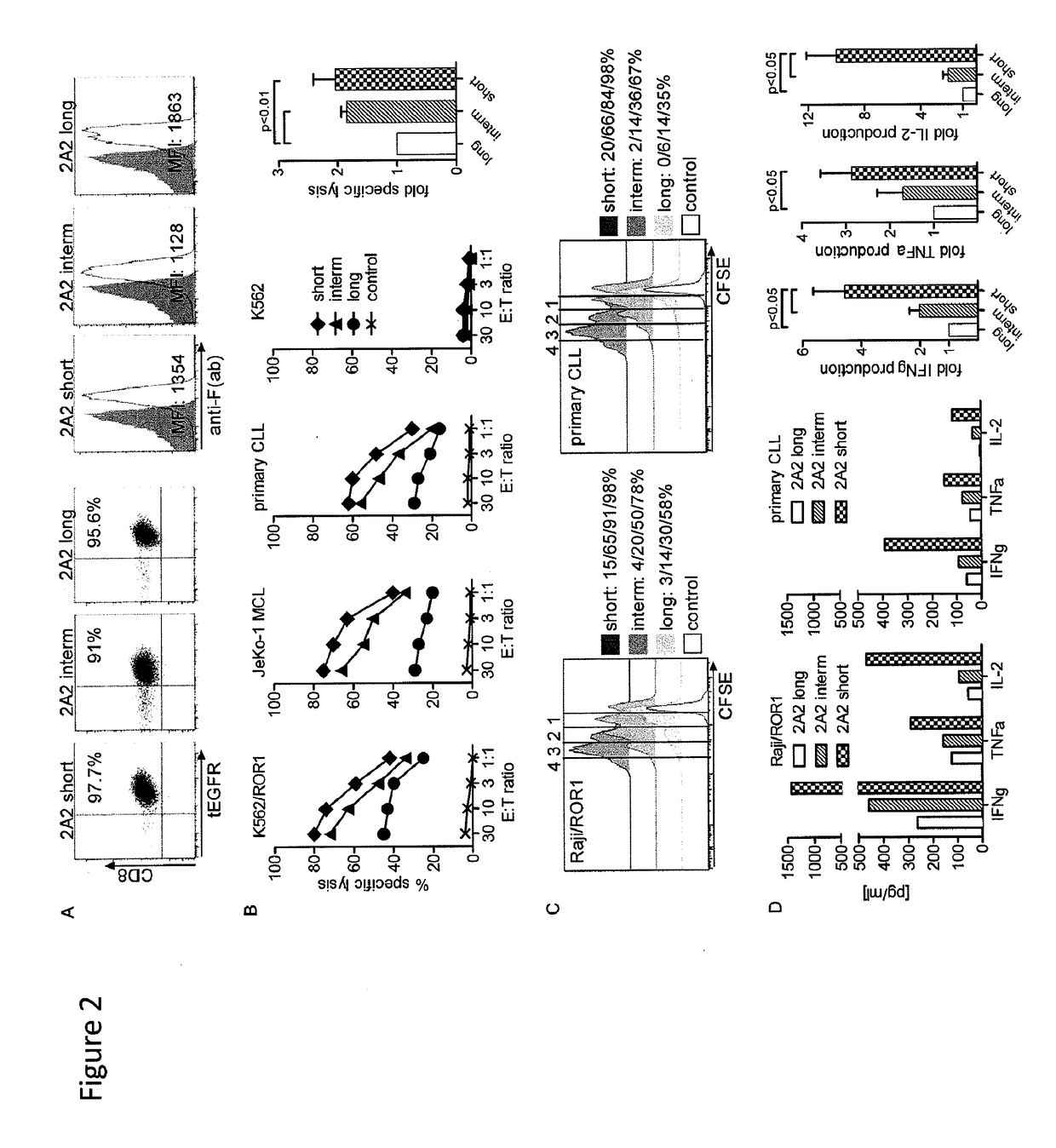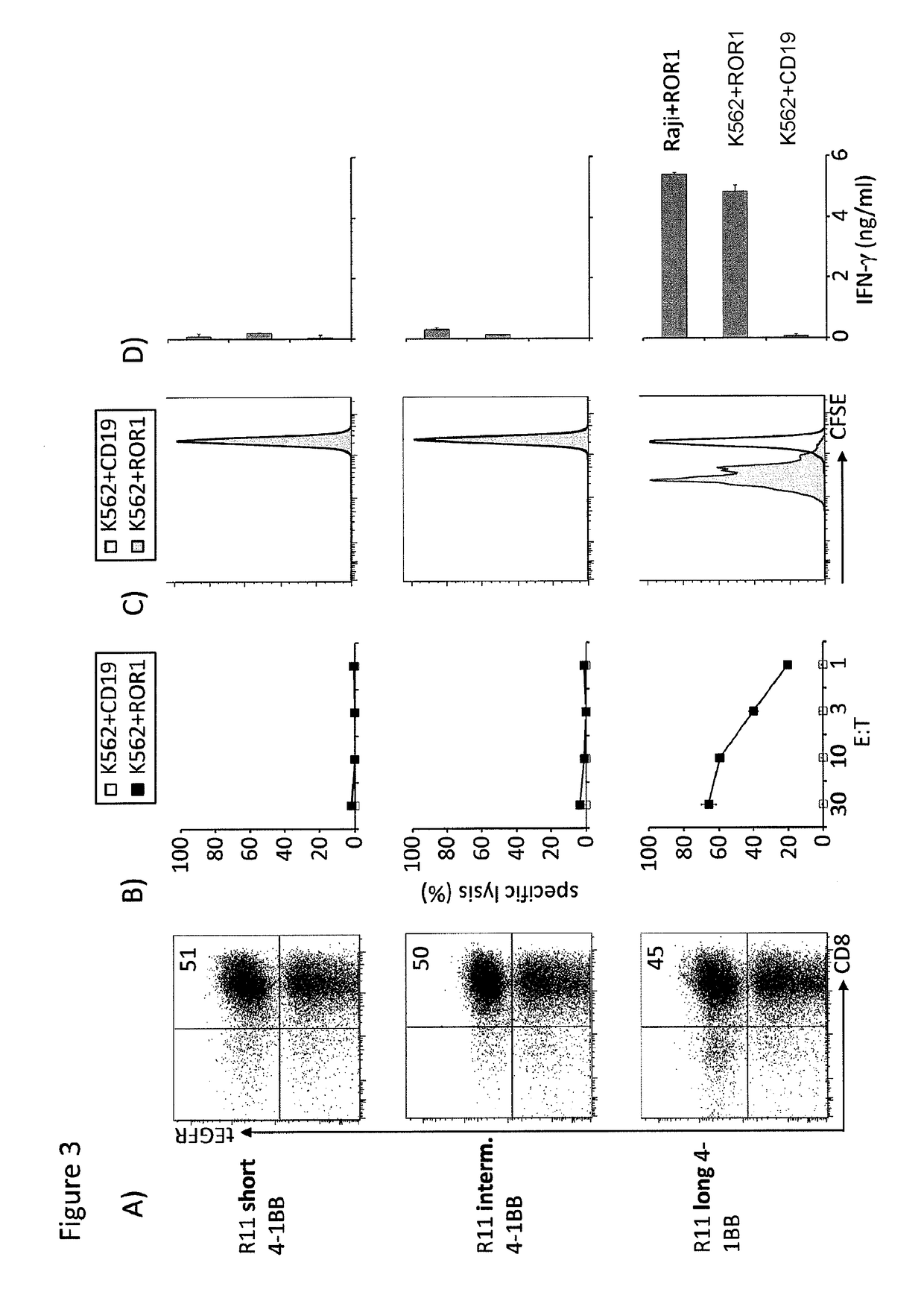Method and compositions for cellular immunotherapy
a cellular immunotherapy and immunotherapy technology, applied in the field of biomedicine, can solve problems such as uncertainty, and achieve the effects of enhancing t cell proliferation and/or cytokine production
- Summary
- Abstract
- Description
- Claims
- Application Information
AI Technical Summary
Benefits of technology
Problems solved by technology
Method used
Image
Examples
example i
ng Spacer Domain Length and scFv Affinity for Optimal Recognition of ROR1 with Chimeric Receptor Modified T Cells
[0187]We constructed chimeric receptors specific for the ROR1 molecule that is expressed on a large number of human malignancies including chronic lymphocytic leukemia, mantle cell lymphoma, acute lymphoblastic leukemia, and breast, lung prostate, pancreas and ovarian cancer. The ROR1 chimeric receptors were designed from ROR1 specific scFVs with different affinities and containing extracellular IgG4-Fc spacer domains of different lengths. The ability of T-cells expressing each ROR-1 specific chimeric receptor to recognize ROR1+ hematopoietic and epithelial tumors in vitro, and to eliminate human mantle cell lymphoma engrafted into immunodeficient mice was analyzed.
Materials and Methods
Human Subjects
[0188]Peripheral blood mononuclear cells (PBMC) were obtained from healthy donors and patients after written informed consent on research protocols approved by the Institution...
example 2
Extracellular Spacer Domain Length on Triggering of Tumor Cell Lysis with a Her2-Specific Chimeric Receptor that Recognizes an Epitope Located Proximal to the Tumor Cell Membrane
[0226]The effect of CAR spacer length on recognition and triggering of tumor cell recognition by CD8+ human T lymphocytes that expressed a HER2-specific chimeric receptor was examined using similar methods to those described above for ROR1. HER2-specific chimeric receptors were constructed using VL and VH chain segments of a HER2-specific mAb that recognized a membrane proximal epitope on HER2 (FIG. 12A), and the scFVs were linked to IgG4 hinge / CH2 / CH3, IgG4 hinge / CH3, and IgG4 hinge only extracellular spacer domains and to the CD28 transmembrane domain, 4-1BB and CD3 zeta signaling domains (FIG. 12B). Primary CD8+ T cells were transduced with each of the HER2 chimeric receptors and selected for expression of the EGFR transducton marker (FIG. 12D). Expression of the HER 2 chimeric receptors and the size of e...
example 3
ng Spacer Length and Sequence for Optimal Recognition and In Vivo Efficacy of CD19 with Chimeric Receptor Modified T Cells
Materials and Methods
Human Subjects
[0228]Blood samples were obtained from healthy donors who provided written informed consent to participate in research protocols approved by the Institutional Review Board of the Fred Hutchinson Cancer Research Center (FHCRC). Peripheral blood mononuclear cells (PBMC) were isolated by centrifugation over Ficoll-Hypaque (Sigma, St. Louis, Mo.), and cryopreserved in RPMI, 20% human serum and 10% dimethyl sulfoxide.
Cell Lines
[0229]The K562, Raji, JeKo-1, and 293T cell lines were obtained from the American Type Culture Collection (Manassas, Va.) and cultured as directed. A lentivirus encoding the ffluc-gene upstream of a T2A sequence and eGFP was produced in 293T cells and used to transduce Raji and JeKo-1 tumor cells. Raji, and JeKo-1 cells were expanded after lentiviral transduction and the eGFP positive subset sort-purified.
Immun...
PUM
| Property | Measurement | Unit |
|---|---|---|
| temperature | aaaaa | aaaaa |
| concentration | aaaaa | aaaaa |
| acquisition time | aaaaa | aaaaa |
Abstract
Description
Claims
Application Information
 Login to View More
Login to View More - R&D
- Intellectual Property
- Life Sciences
- Materials
- Tech Scout
- Unparalleled Data Quality
- Higher Quality Content
- 60% Fewer Hallucinations
Browse by: Latest US Patents, China's latest patents, Technical Efficacy Thesaurus, Application Domain, Technology Topic, Popular Technical Reports.
© 2025 PatSnap. All rights reserved.Legal|Privacy policy|Modern Slavery Act Transparency Statement|Sitemap|About US| Contact US: help@patsnap.com



